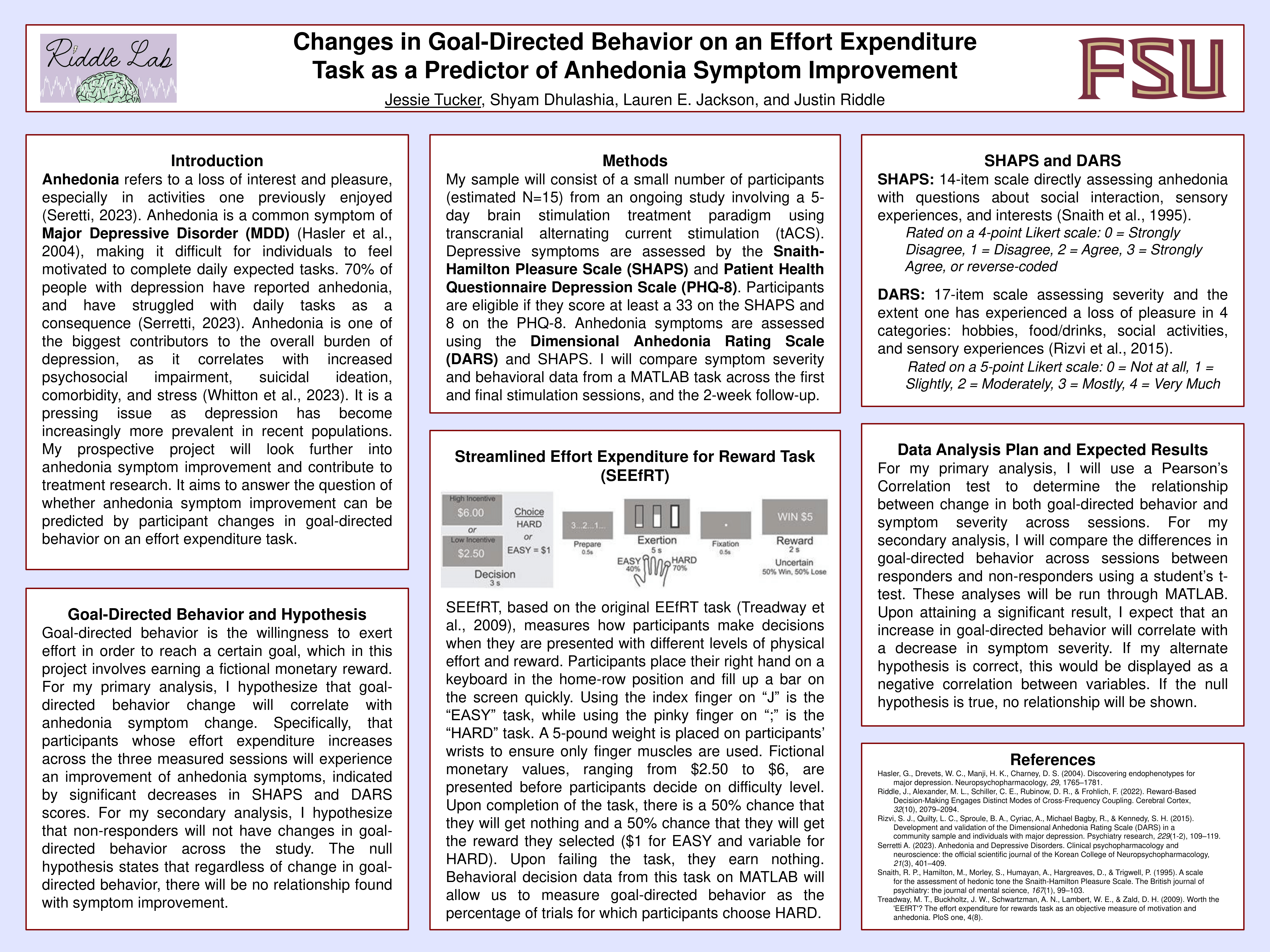Research Symposium
25th annual Undergraduate Research Symposium, April 1, 2025
Jessie Tucker Poster Session 4: 3:00 pm - 4:00 pm/ Poster #95

BIO
Jessie is a Behavioral Neuroscience major in the Honors Program at FSU. She is interested in studying and treating neurological disorders, particularly in children. When she graduates, she plans to continue exploring the medical applications of neuroscience research by pursuing an M.D., and hopes to specialize in Pediatric Neurology.
Changes in Goal-Directed Behavior on an Effort Expenditure Task as a Predictor of Anhedonia Symptom Improvement
Authors: Jessie Tucker, Justin RiddleStudent Major: Behavioral Neuroscience
Mentor: Justin Riddle
Mentor's Department: Neuroscience and Psychology Mentor's College: College of Arts and Sciences Co-Presenters:
Abstract
Anhedonia refers to a loss of pleasure. It impacts people’s motivation to complete daily tasks, often affecting populations with major depression. Depression is a growing problem, making symptom research increasingly important. Previous literature correlates anhedonia with reward processing deficits, including decreased goal-directed behavior, or willingness to expend effort for a goal. My project will contribute to research about understanding and treating anhedonia through analyzing its relationship with goal-directed behavior. I will analyze participants with anhedonia from a transcranial alternating current stimulation study at Florida State University. Symptoms are assessed using questionnaires. The two I will analyze are the Snaith-Hamilton Pleasure Scale and Dimensional Anhedonia Rating Scale. Goal-directed behavior will be measured through a computerized effort expenditure task, specifically by the percentage which a participant chooses a higher effort task for a reward. I will compare data from the first and fifth stimulation sessions, and the two-week follow up. I hypothesize that goal-directed behavior change will correlate with symptom change; specifically, participants with increased goal-directed behavior will decrease in symptom severity. To determine the significance of this relationship across sessions, I will use a Pearson’s correlation test. Additionally, I will compare goal-directed behavior changes between responders and non-responders using a Student’s t-test, and hypothesize that responders will show a greater increase in goal-directed behavior. Supporting results for my hypothesis will depict a negative correlation between severity and goal-directed behavior. This would indicate symptom improvement may be predicted and encouraged by increased goal-directed behavior, but would require future research for causal claims.
Keywords: Anhedonia, Effort, Motivation, Reward, Goal-Directed Behavior


